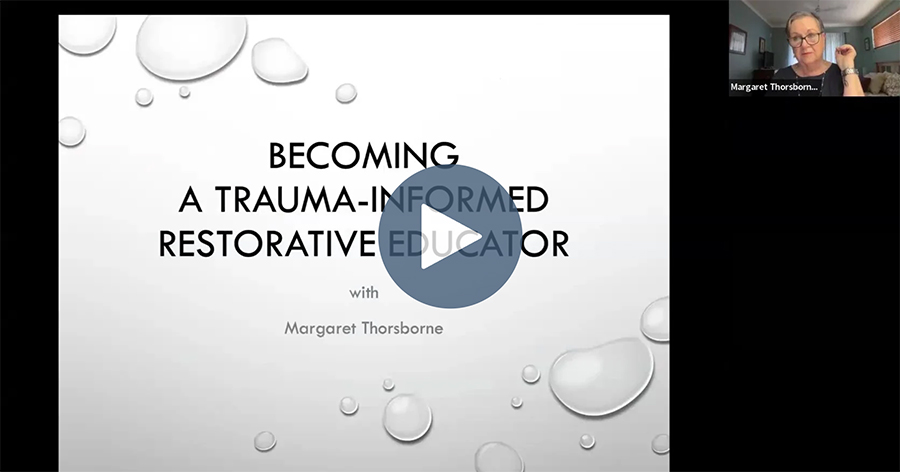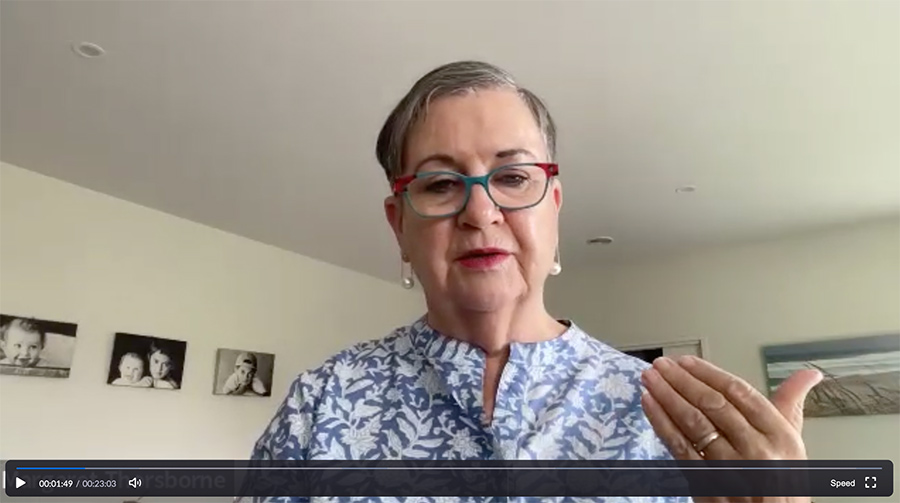Shifting from Retribution to Repair: A Discussion with Margaret Thorsborne
Marg Thorsborne and Joe Brummer: Becoming A Trauma Informed Restorative Educator
Joe and Marg discuss critical areas of Restorative Practices and Trauma-Informed readiness.
Margaret Thorsborne in conversation with Michelle Stowe
Margaret Thorsborne – Becoming a Trauma-Informed Restorative Educator – interview with Nick Burnett
Michelle Stowe Interview with Margaret Thorsborne
Dr. Jennifer Fuller Interview with Margaret Thorsborne
Leading in a Restorative School
TEDxDarwin | The healing power of dialogue
University of Queensland Business Leadership MicroMasters
The Power of Dialogue V1
University of Queensland Business Leadership MicroMasters
Restorative Approach to Serious Conflict V2
The Nature of Emotional Harm
Nelson Marlborough Health Services Board Talk
Leading in a Restorative Community
Session Interview
Book Interview




